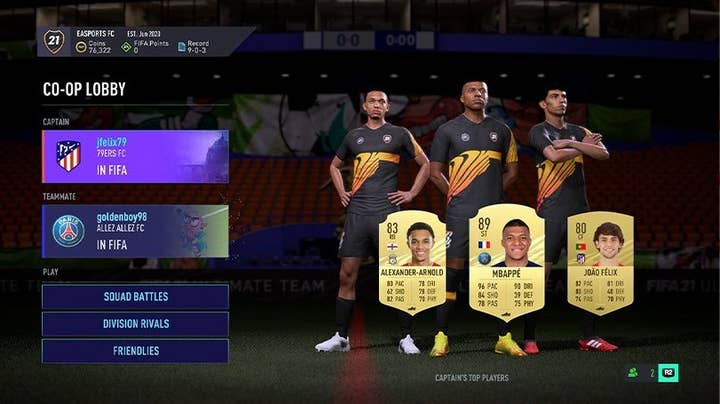Dutch Gambling Authority vs Electronic Arts, and the future of loot boxes
René Otto breaks down the Dutch State Council's decision that FIFA card packs should not be regulated under gambling laws
After more than four years of discussion, there finally seems to be clarity about whether the FIFA Packs should be seen as gambling under Dutch legislation.
The Administrative Jurisdiction Division of the Dutch State Council ruled last month that FIFA's card packs do not qualify as a game of chance, because they form an 'inseparable part' of a game of skill: the FIFA Ultimate team mode.
As this court is the highest administrative court in the Netherlands, lodging an appeal is not an option for the Dutch Gambling Authority and this ruling is a landmark case for the treatment of loot boxes under Dutch gambling legislation.
This article takes a closer look at the ruling and its possible consequences for the global video games industry.
First, it is necessary to outline the Dutch legal framework.
The Dutch Gambling Act
The Dutch gambling laws are codified in the Dutch Gambling Act ("Wet op de Kansspelen").
Under this law it is prohibited to offer a game of chance to a person on Dutch territory, except in case the company that offers this game has received a permit of the Dutch Gambling Authority ("de Nederlandse Kansspelautoriteit").

The Dutch legal definition of a 'game of chance' contains two criteria that have to be met:
- A participant to the game should have an opportunity to win prizes or premiums
- The winner of the game is determined by chance
The criterium that the participant has an opportunity to win a 'prize or premium' means that the participant should be able to obtain something of economic value in case that he/she/they wins. This could either be money or an item of economic worth.
The criterium that the outcome of the game is determined by chance means that the participant cannot influence the outcome of the game by his/her/their own actions.
One can imagine that there could be quite a few scenarios where both skill and chance are in play. In those cases, a game is still considered a game of chance, except when the participant can exercise a predominant influence of the outcome of the game with his/her/their skill. So games where chance is the major contributor to the outcome of the game are still considered games of chance.
Whether this is the case has to be assessed by evaluating the results that the (large) majority of the players achieve by playing the game. This assessment method has the consequence that even if a few very skilled players are able to determine their outcome by their unusual high level of skill (such as by having extraordinary senses or by spending a lot of time on training), the game will still be considered a game of chance if the vast majority of players rely on luck.
The ruling of the Dutch State Council
The decision of the Dutch State Council is rather brief and only takes up nine pages. The judge starts with the consideration that in the case of loot boxes, it must first be established whether obtaining or opening them can be regarded as a standalone game. Only if a loot box is a standalone game should it be assessed whether a loot box meets the definition of a game of chance. According to the judge, in order to determine this, it is necessary to look at how the game is played by the majority of players.
The actual in-game economy will be of high importance when assessing the legality of loot boxes
In the case of FIFA Ultimate Team, the judge considers that this is a (mixed) game of skill, because in the end the virtual football matches are won by the best player. The FIFA packs are considered part of this mode, as the packs are acquired and opened in this mode (and would only be opened to get good players for playing the virtual football matches).
According to the judge, the fact that it is possible to buy FIFA packs with real money does not make the situation any different. The judge attaches particular importance to the fact that 92% of the FIFA packs would be obtained by playing the game and only 8% are bought.
In light of the foregoing, FIFA packs are seen as an integral part of FIFA Ultimate Team, which is considered a game of skill. As a result, the Dutch State Council considers that Dutch gambling legislation does not apply to loot boxes and their offering is therefore not prohibited.
According to the Dutch State Council, it could be different in a specific case if it is shown that loot boxes are opened on a large scale for the sole reason of trading their contents.
A first analysis of this decision and its consequences
In all honesty, I find this ruling quite unexpected and surprising. The reason for this is that the Dutch State Council introduces a new standard of assessment.
The fact that the Dutch gambling laws are not applicable to games of chance that form an inseparable part of a game of skill is not new. This had already been ruled by the Dutch Supreme Court in 1991.
What is actually new is the assessment criterion that to determine whether a loot box is an inseparable part of a game of skill, it must be looked at how the game is played by the vast majority of players. If this criterion is also used by the Dutch State Council in the future, this means that the actual in-game economy will be of high importance when assessing the legality of loot boxes.

According to this decision, it seems that loot boxes are not subject to Dutch gambling laws if the following cumulative criteria are met:
- The loot boxes are part of a (competitive) video game where the winner of said video game is decided by skill
- The loot boxes are obtained and opened in the digital environment of this video game
- The loot boxes can (also) be earned by playing the video game
- The vast majority of the loot boxes are obtained by playing the video game (and there is not a situation where players buy loot boxes on a large scale for the sole reason to sell the contents thereof)
This would mean that actually a lot of loot boxes in modern video games are no longer subject to the Dutch gambling laws and would therefore be legally allowed.
A lot of video games include loot boxes in competitive multiplayer games to obtain skins or useful items which might influence the chance of winning any game, but in the end the winner is decided in the online multiplayer match.
Since the Netherlands was at the forefront of the loot boxes discussion, I imagine this could set some informal precedent for other countries
The only exception I can quickly think of is for the new 'play to earn' games where you could argue that players would buy loot boxes for the sake of trading the economic value of the contents thereof (which would not be compliant with the fourth criterium).
What still remains unclear is what the ratio should be between paid loot boxes and loot boxes obtained by playing the game. It seems that at least the vast majority of the loot boxes should be obtained by playing the game, but any tipping point is currently absent. So in cases where 60% of the loot boxes are obtained by playing the game, it is still unclear if the Dutch gambling laws apply.
As such, I could imagine that video game developers offering loot boxes in the Netherlands could maximize the amount of loot boxes (per period of time) that any player can buy to keep this ratio favourable for the argument that the Dutch gambling laws are not applicable.
Nevertheless, it seems that many video games that were not released due to any risk non-compliance with the Dutch gambling legislation could consider to still release their game in the Netherlands after this court decision.
It has yet to be seen whether this decision will set an international precedent. Gambling laws are determined nationally and therefore the legal frameworks are different between countries. However, since the Netherlands was one of the countries at the forefront of the discussion about whether loot boxes were compliant with gambling laws, I could also imagine that the decision could set some informal precedent for other countries as well.
How large or small this precedent is, depends hugely on the similarities between legal regimes across different countries. In countries where gambling laws do not apply to games of chance that are an inseparable part of a game of skill, it could be well possible that the reasoning of the Dutch State Council will be followed. However, that court is free to decide otherwise.
That being said, it seems that loot boxes are less of a legal black box in the Netherlands as of this court decision.
René Otto is a video games & esports lawyer at the Dutch law firm Van Iersel Luchtman. He is also a board member of Breda Game City and an ambassador for Women in Games. He was included our Game Changers 2021 feature for his contributions to the industry.